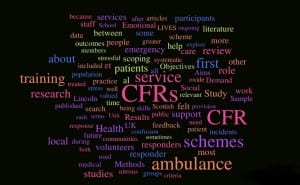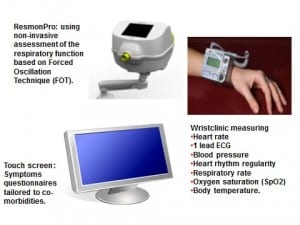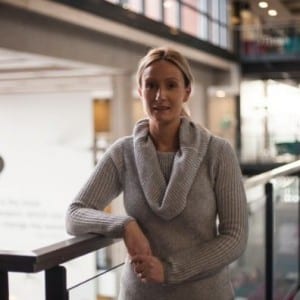 Viet-Hai Phung presented the findings of a University of Lincoln study on Community First Responders at a meeting of the National Ambulance Service First Responder Managers Forum at East Midlands Ambulance Service NHS Trust at Beechdale, Nottingham on 25th April 2017. The presentation set out the aims and objectives of the research, which were to explore the role of CFRs in a rural location, using a systematic scoping review followed up by qualitative interviews.
Viet-Hai Phung presented the findings of a University of Lincoln study on Community First Responders at a meeting of the National Ambulance Service First Responder Managers Forum at East Midlands Ambulance Service NHS Trust at Beechdale, Nottingham on 25th April 2017. The presentation set out the aims and objectives of the research, which were to explore the role of CFRs in a rural location, using a systematic scoping review followed up by qualitative interviews.
This study team of Viet-Hai Phung, Fiona Togher, Ian Trueman, Prof Roderick Ørner and Prof Niro Siriwardena, began the research in April 2016 with a systematic scoping review of CFR schemes in the UK which was published recently.  Then followed a qualitative study involving 16 interviews of CFRs, conducted from June-July 2016. After describing the progress of the study, Viet-Hai Phung outlined the key findings of the scoping review. These included that: volunteers became CFRs mainly for altruistic reasons; they wanted more training and feedback on incidents they had attended; there were concerns about the possible emotional impact on CFRs responding to incidents; there was low public recognition of CFR schemes and sometimes confusion with ambulance staff; relationships with the ambulance staff were sometimes affected by confusion over roles; CFRs wanted local autonomy for CFR schemes but with greater sharing of best practice. Some of the findings from the scoping review were reinforced by the interview study. These findings, alongside others, were reinforced by the interview study.
Then followed a qualitative study involving 16 interviews of CFRs, conducted from June-July 2016. After describing the progress of the study, Viet-Hai Phung outlined the key findings of the scoping review. These included that: volunteers became CFRs mainly for altruistic reasons; they wanted more training and feedback on incidents they had attended; there were concerns about the possible emotional impact on CFRs responding to incidents; there was low public recognition of CFR schemes and sometimes confusion with ambulance staff; relationships with the ambulance staff were sometimes affected by confusion over roles; CFRs wanted local autonomy for CFR schemes but with greater sharing of best practice. Some of the findings from the scoping review were reinforced by the interview study. These findings, alongside others, were reinforced by the interview study.
The broad consensus among the regional ambulance managers was that further research was needed on CFRs and CFR schemes building on the work so far, and CaHRU is committed to working with ambulance trusts to further develop the work on CFRs. Professor Niro Siriwardena, who was also present at the event, said there were plans to discuss this further with ambulance service research leads at the next meeting of the National Ambulance Research Steering Group.
By Viet-Hai Phung











